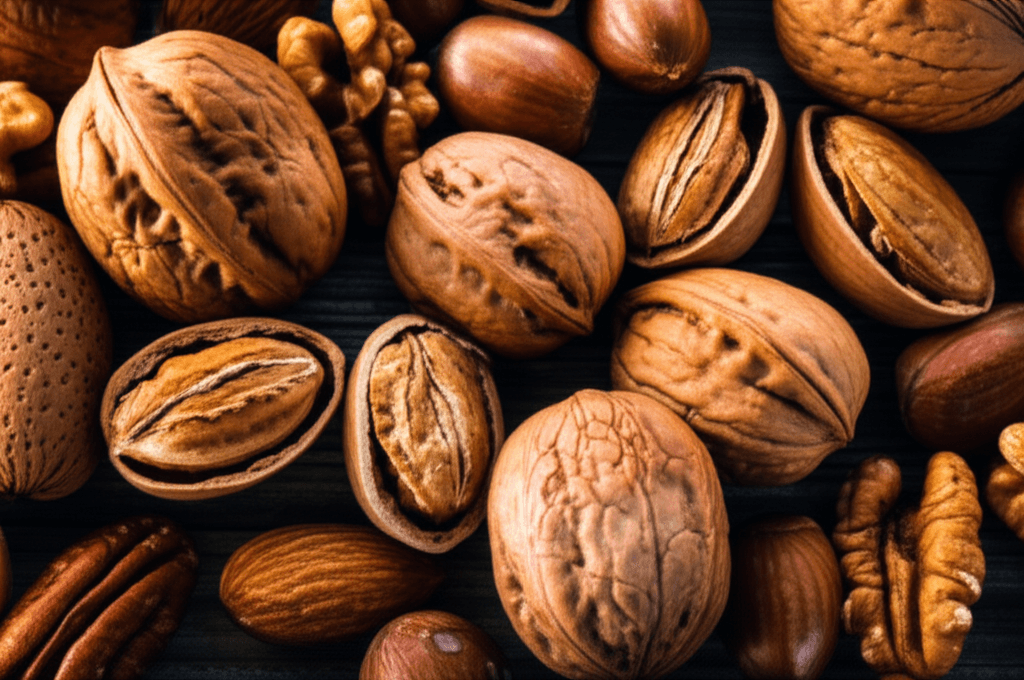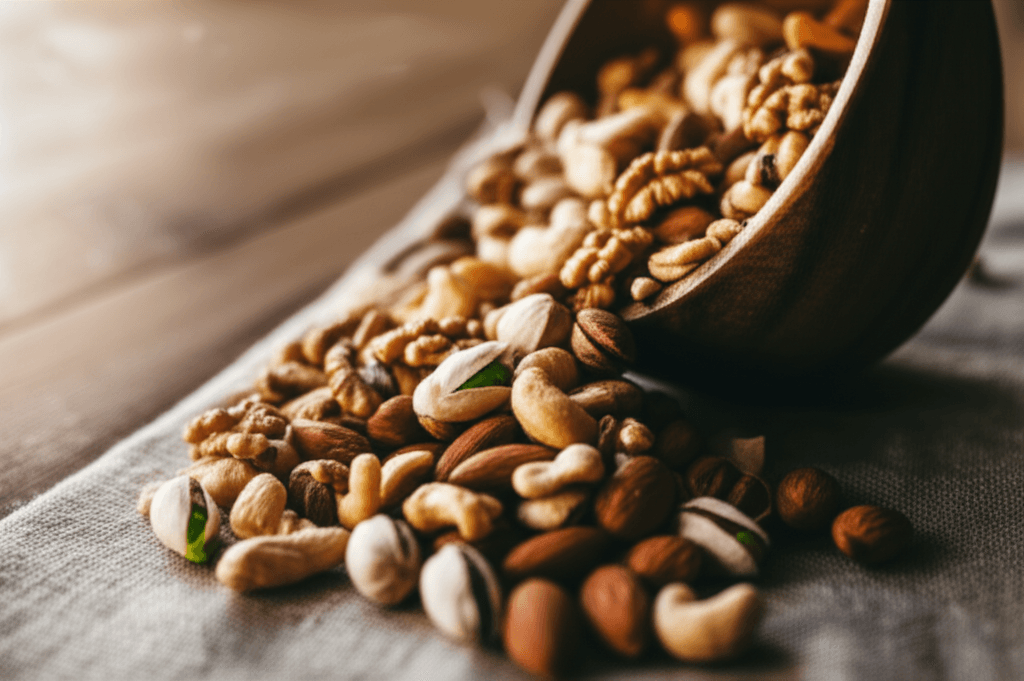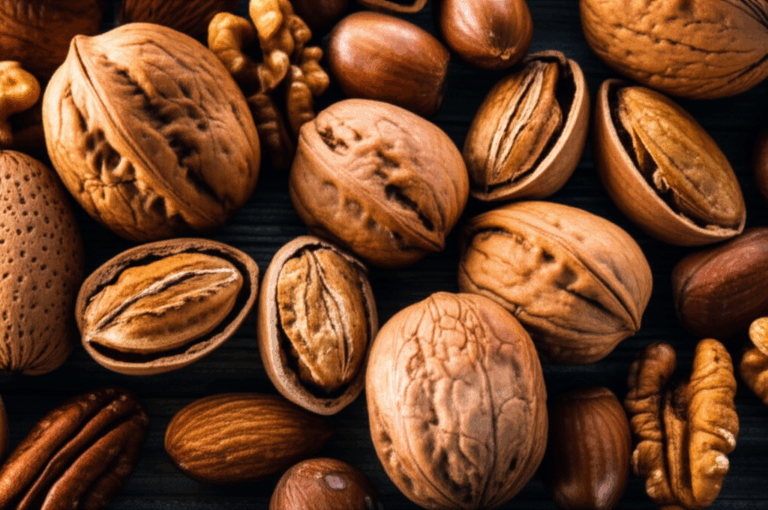For years, nuts carried a reputation for being high in calories and fat, often sidelined by those focused on weight management. However, a growing body of scientific evidence is cracking open this misconception, revealing nuts to be powerhouse foods brimming with nutrients that actively support health and fitness. Far from being a dietary indulgence to be avoided, a regular, moderate intake of nuts can be a cornerstone of a healthy lifestyle, offering significant benefits despite their caloric density.

The Nutrient-Dense Profile of Nuts
Nuts are nutritional marvels, packing a wide array of essential vitamins, minerals, healthy fats, protein, and fiber into a small package. While their exact composition varies by type, common nuts like almonds, walnuts, pistachios, pecans, and cashews share a generally robust nutritional profile.
Healthy Fats: The Good Kind of Fat
One of the most significant contributions of nuts to health is their healthy fat content. They are rich in monounsaturated and polyunsaturated fatty acids, including omega-3s, which are crucial for cardiovascular health. These “good fats” help lower levels of low-density lipoprotein (LDL) or “bad” cholesterol, and may even increase high-density lipoprotein (HDL) or “good” cholesterol, particularly for those at high risk of cardiovascular disease. Walnuts, for instance, are particularly noted for their high alpha-linolenic acid (ALA) content, a plant-based omega-3 fatty acid beneficial for preventing heart arrhythmias and reducing inflammation.
Protein Power for Satiety and Muscle Maintenance
Nuts are excellent sources of plant-based protein, making them a valuable addition to any diet, especially for vegetarians and vegans. Protein is vital for muscle repair and growth, and it also plays a key role in promoting satiety, helping you feel fuller for longer. An ounce (28 grams) of mixed nuts can provide about 5 grams of protein, while specific nuts like peanuts and almonds offer even more.
Fiber: Essential for Digestion and Blood Sugar Control
Dietary fiber is abundant in most nuts, contributing significantly to digestive health. Fiber aids in bowel regularity and can help prevent various gut issues. Beyond digestion, fiber is instrumental in blood sugar control, slowing down the absorption of sugars and helping to stabilize blood glucose levels. Almonds, pistachios, and hazelnuts are among the nuts particularly rich in fiber.
Vitamins, Minerals, and Antioxidants: Micro-Nutrient Marvels
Nuts are powerhouses of micronutrients. They contain essential vitamins like Vitamin E (abundant in almonds and hazelnuts), and various B vitamins. Minerals such as magnesium, phosphorus, copper, manganese, selenium, and zinc are also found in significant amounts.
Perhaps one of their most celebrated aspects is their high antioxidant content. Nuts are loaded with antioxidants, including polyphenols, which combat oxidative stress by neutralizing free radicals, unstable molecules that can cause cell damage and increase disease risk. Walnuts, in particular, have been found to have a greater capacity to fight free radicals than many other nuts. Pecans also show a significant ability to reduce oxidized “bad” LDL cholesterol.

Unpacking the Health and Fitness Benefits
The comprehensive nutritional profile of nuts translates into a wide array of health benefits that extend far beyond their caloric value.
Heart Health Guardian
Regular consumption of nuts is strongly linked to improved heart health. Studies show that eating around 15g of nuts and seeds per day can decrease the risk of coronary heart disease by approximately 20%. Nuts contribute to heart health by lowering LDL cholesterol and triglycerides, reducing inflammation, improving artery health, and decreasing the risk of blood clots.
Aiding Weight Management, Not Hindering It
Despite being calorie-dense, nuts can be a valuable tool for weight management. This might seem counterintuitive, but research consistently shows that higher nut consumption does not lead to greater weight gain; rather, it can be beneficial for weight control and preventing long-term weight gain.
Several mechanisms explain this:
- Satiety: The combination of protein, fiber, and healthy fats in nuts promotes a feeling of fullness, reducing overall calorie intake from other foods.
- Incomplete Calorie Absorption: The unique structure of nuts means that not all their calories are absorbed by the body. Some fat remains trapped within the fibrous cell walls and passes through the digestive system undigested.
- Metabolic Boost: Some evidence suggests that the consumption of nuts may slightly increase metabolism and resting energy expenditure.
- Replacing Less Healthy Snacks: When nuts replace less healthful foods like processed snacks, they contribute to a healthier dietary pattern and can prevent gradual weight gain.
Beneficial for Blood Sugar Control
Nuts are low in carbohydrates and do not cause significant spikes in blood sugar levels, making them an excellent food choice for individuals with type 2 diabetes and metabolic syndrome. Studies indicate that eating nuts may help lower oxidative stress, blood pressure, and improve insulin sensitivity in people with these conditions. Pecans, almonds, cashews, and pistachios have all been highlighted for their positive impact on blood sugar regulation.
Reducing Inflammation and Oxidative Stress
Chronic inflammation and oxidative stress are implicated in many chronic diseases. Nuts, with their rich supply of antioxidants (like polyphenols and Vitamin E) and anti-inflammatory compounds, can help mitigate these harmful processes. Research suggests that regular nut consumption can reduce inflammatory markers in the body, promoting healthy aging.
Supporting Gut Health
The fiber and polyphenols in nuts also contribute to a healthy gut microbiome. Fiber acts as a prebiotic, feeding beneficial gut bacteria, which in turn produce short-chain fatty acids that support both gut and overall health.

Incorporating Nuts into Your Diet
To reap the full benefits of nuts without overdoing the calories, moderation and mindful consumption are key. A typical serving size is about one ounce (28 grams), which is roughly a small handful.
Here are some practical ways to include nuts in your daily diet:
- Snack Smart: Enjoy a small handful of raw or dry-roasted, unsalted nuts as a convenient and satisfying snack.
- Breakfast Boost: Sprinkle chopped nuts over oatmeal, yogurt, or whole-grain cereals.
- Salad Enhancer: Add nuts to salads for extra crunch, flavor, and nutrients.
- Cooking Companion: Incorporate nuts into stir-fries, pesto, or as a crust for baked fish or chicken.
- Nut Butters: Opt for natural, unsweetened nut butters on apple slices, celery, or whole-grain toast.
Conclusion
Nuts are far more than just a calorie source; they are miniature powerhouses of nutrition that offer a wealth of health and fitness benefits. From safeguarding heart health and aiding in weight management to stabilizing blood sugar and combating inflammation, their unique blend of healthy fats, protein, fiber, vitamins, minerals, and antioxidants makes them an indispensable part of a balanced diet. By understanding their true value and incorporating them mindfully, you can unlock the secret to enhanced well-being that nuts have to offer.







